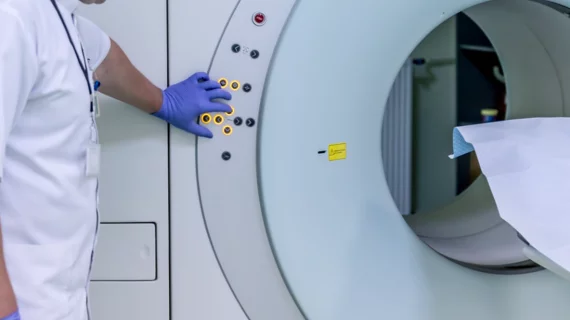Multiparametric MRI can be a valuable tool for visualizing prostate changes and monitoring patients after MRI-guided focal laser ablation (FLA), according to a July 10 American Journal of Roentgenology study.
Previous studies have found MRI-guided FLA to be “feasible, safe and associated with favorable outcomes,” wrote first author Charles Westin, with the University of Chicago, and colleagues. "[But] MRI findings after laser ablation have yet to be fully described in the literature and are of great importance with respect to long-term disease management decisions."
Westin and colleagues evaluated 27 patients with clinically defined category T1c or T2a prostate cancer. All participants underwent prostate biopsy before and after FLA, and received an MRI before and after surgery.
Results showed a hypovascular defect in the ablation zone of all 36 treated cancers among the cohort. Authors noted, three months following ablation, 26 of the 27 patients had no evidence of cancer. A year after surgery, 10 men had cancer, three developed the disease at the ablation site and eight had cancer outside the ablation zone.
Authors also found, “patchy” or “bandlike” decreased T2 signals were most commonly noted at three months in 66.7 percent of ablated lesions, and T2 scarring in a majority of lesions (66.7 percent) at 12 months.
“Multiparametric MRI can show postablation changes in the prostate and can be a valuable tool for the follow-up of patients who have undergone MRI-guided FLA,” authors wrote. “Contrast-enhanced MR images obtained immediately after ablation are very important in delineating the ablation zone.
“Residual cancer has MRI characteristics similar to those of treatment-naive prostate cancer and can be detected on multiparametric MRI,” they added. “Accurate knowledge of the common imaging appearance of the postablation prostate as well as recurrent disease is essential for making informed clinical management decisions.”

